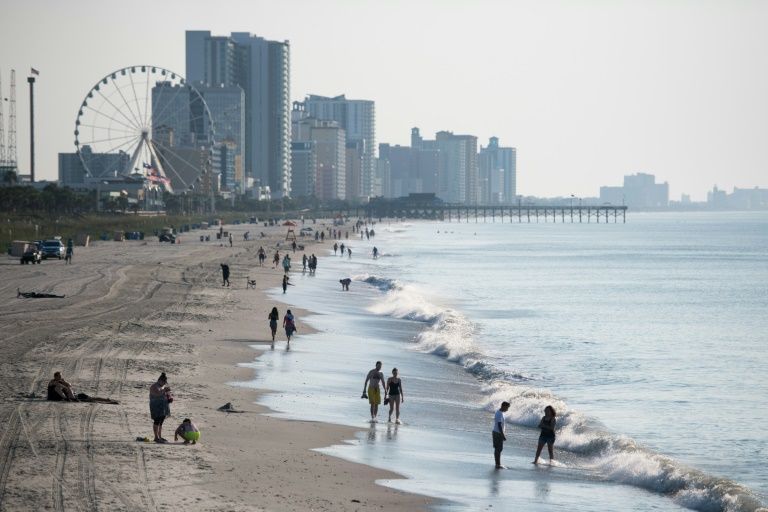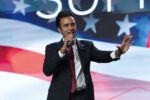Virus, protests and Trump’s angry words darken July 4 weekend
Across the country, Main Street parades have been canceled, boisterous backyard barbecues scaled down, and family reunions put off amid worries about air travel and concerns about spreading the virus.
Some events will be held virtually, as states and cities grapple with a new surge in the coronavirus, using a mix of admonitions and prohibitions.
Miami Beach, for one, has imposed a weekend curfew and made it mandatory to wear a mask in public.
The US virus death toll is fast approaching 130,000, roughly one-quarter the world’s total, even as many European countries are edging back toward normality.
That has given this July 4th weekend a particularly dark cast, as the pent-up desire to celebrate enters into sharp tension with science-based calls for caution.
– Fireworks canceled –
Fireworks displays are typically a high point of the holiday, with crowds of thousands gathering to ooh and aah, but an estimated 80 percent of the events have been canceled this year. Some locales are urging people to watch fireworks from their cars.
The US trade war with China had, in any case, made it harder than usual to procure pyrotechnics.
Yet while cities and states can enforce virus bans in public, some Americans in their backyards are carrying on as if the deadly pandemic were a thing of the past.
Continuing a year of confusingly mixed signals, local officials in Washington have discouraged residents from massing on the National Mall for the capital’s traditional fireworks display. But Trump, fresh from his appearance Friday before the monumental sculpture of four presidents on Mount Rushmore, plans to be on the Mall for a “Salute to America” complete with military music and flyovers.
– ‘Violent mayhem’ –
While presidents’ July 4 speeches traditionally are uplifting affairs that emphasize patriotism and national unity, Trump’s speech in South Dakota angrily lashed out at the protests that have erupted since the death at police hands of George Floyd.
Facing a tough re-election battle in November and eager to mobilize his political base, Trump denounced “violent mayhem” on US streets, though most demonstrations have been peaceful, and accused protesters of waging “a merciless campaign to wipe out our history, defame our heroes, erase our values, and indoctrinate our children.”
Trump’s presumptive opponent in the fall, Democrat Joe Biden, has struck a sharply different tone on the country’s raw racial tensions, tweeting on Saturday: “Our nation was founded on a simple idea: We’re all created equal. We’ve never lived up to it — but we’ve never stopped trying. This Independence Day, let’s not just celebrate those words, let’s commit to finally fulfill them.”
Protests have become a regular feature in many US cities since Floyd’s death in May in Minneapolis, Minnesota, and more than a score of demonstrations were planned for Saturday in Washington.
The largest are expected to include a George Floyd memorial March beginning at the Lincoln Memorial; a Black Out March at the US Capitol; and a Black Lives Matter protest at the National Museum of African American History and Culture.
All the protests — in theory — should be over before the night’s celebration on the Mall.
Public health officials have been bracing for a new spike in virus cases after this weekend’s celebrations and protests.
Some link the latest flareup to the delayed result of widespread celebrations during the Memorial Day holiday in late May, and to the reopening of some states’ economies starting around that time.
And they see this Independence Day weekend as a potential tipping point — in the worst case, a replay of the post-Memorial Day resurgence.
Disclaimer: Validity of the above story is for 7 Days from original date of publishing. Source: AFP.


